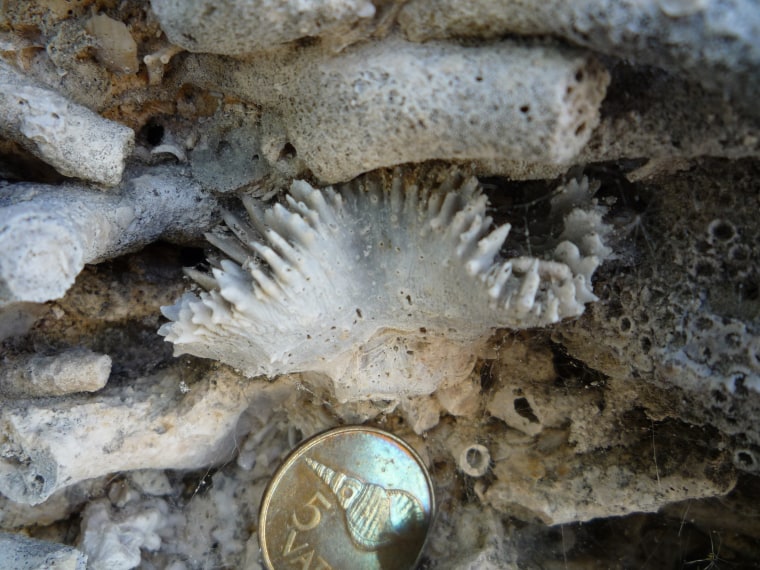Coral reefs attract scuba divers because these mounds of color and texture harbor a rich variety of life, from fish to sponges to sea stars. But creatures don't just live on reefs — they're generated by them, according to a new study.
Those new species then go on to populate other parts of the oceans — both near and far.
Conservation efforts typically focus on places where species are disappearing most quickly. The new findings suggest that we also need to protect places where species are forming most rapidly.
"The question was whether reefs pump out species like crazy, and yes they do," said Wolfgang Kiessling, a paleontologist at the Museum fur Naturkunde at the Humboldt University in Berlin.
"The major implication is that you really need to conserve reefs not only because they are ecologically important but because they are evolutionarily important," he added. "When a lot of species become extinct, you really need reefs to rebuild diversity in the oceans."
Kiessling and colleagues looked through a database of more than 3 million fossil specimens dating back 540 million years. For each genus of creature, the researchers investigated the type of environment where it first appeared.
Their results, published today in the journal Science, showed that reefs produced 50 percent more diversity than other tropical ecosystems. What's more, the list of reef-borne creatures included types that don't normally live on reefs, including clams, oysters and other bottom-dwellers.
Down the line, those animals often end up living away from reefs and even outside the tropics.
"New genera that originate in reefs don't stay there," Kiessling said. "They move out of reefs to other environments and basically contribute biodiversity to other ecosystems."
The reason reefs are so good at creating new forms of life, the researchers propose, is that they are full of nooks and crannies where animals can discover new niches.
"Instead of being in the farmland in the middle of Minnesota, they're in the high-rise buildings you find in Chicago," explained marine paleoecologist John Pandolfi, of the Center for Marine Studies at the University of Queensland in Australia. "There are a lot more places to hide and a lot more places where species can live."
The findings, he said, add another dimension behind the need to protect coral reefs and other marine environments.
"If we're doing a lot to damage reefs, we're actually choking off the diversity that might have fed into other marine ecosystems," Pandolfi said.
